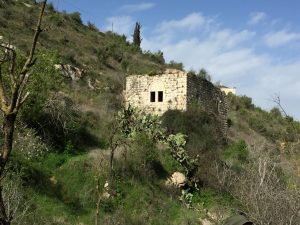International Conflict Resolution Trip to Israel: Perspectives from a Property Law Professor

I was fortunate to have gone on the Marquette University international spring break trip to Israel with Professors Schneider and Fleury and students in their Dispute Resolution Seminar. I attended the trip as a faculty guest without the benefit of being an expert in dispute resolution like my two colleagues or studying the Israeli-Palestinian conflict like the students enrolled in the seminar. Rather, my expertise is in the areas of tax and real estate law. Before embarking on the trip, I was excited to embrace the trip’s focus on dispute resolution, but I was also intent on learning as much as possible about my primary areas. I will limit my observations to real estate law.
One of the highlights of the trip was meeting with professors, justices of the Israeli Supreme Court, students, lawyers, historians, and other leaders. We also had two wonderful tour guides who provided us with a wealth of information during the entire trip. During our tour of Lifta, an abandoned Palestinian village in Jerusalem, I learned that the government owned approximately 90% of Israeli land. Therefore, most homeowners build their homes on land that is leased from the government under 99-year ground leases. The leases were executed post-1948; thus, none of them had expired. I asked the professor leading our tour of Lifta what would happen at the end of the lease terms. Her response was that no one really knew. In comparison, many long-term ground leases in the United States are renewable and include options to purchase. With the “bundle of rights” that we place on property in the United States, I find this lack of clarity related to the Israeli leases to be a bit unsettling.


